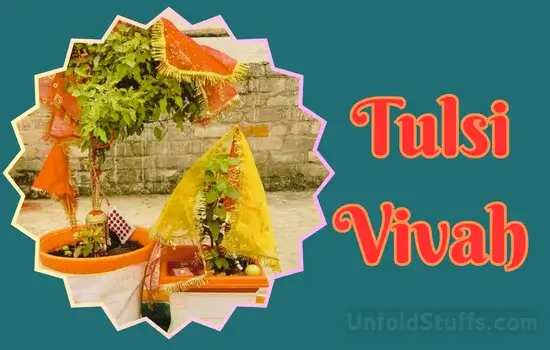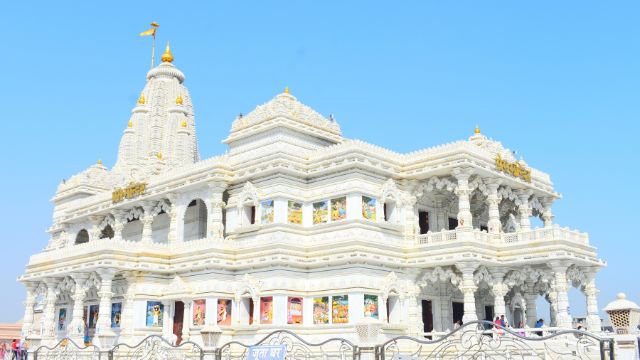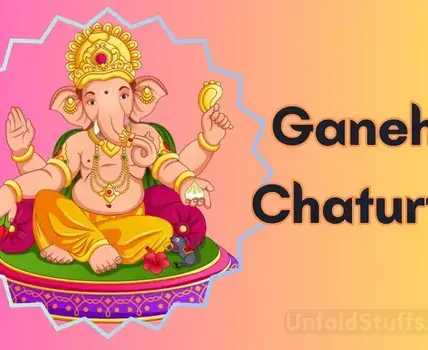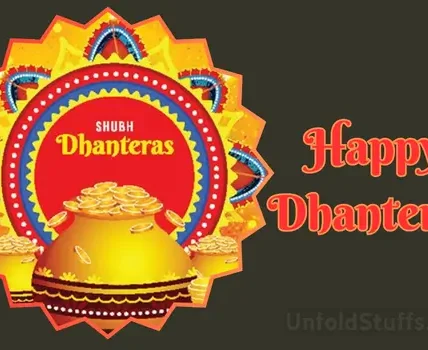Tulsi Vivah 2024 Puja Date and Time
Tulsi Vivah 2024 |
||
| Event | Date & Time | Day |
| Tulsi Vivah 2024 | November 13, 2024 | Wednesday |
| Dwadashi Tithi Begins | 04:04 PM on Nov 12, 2024 | Tuesday |
| Dwadashi Tithi Ends | 01:01 PM on Nov 13, 2024 | Wednesday |
Stories Related to Tulsi Vivah
The Legend of Tulsi and Shankhchuda:
Long ago, there was a virtuous princess named Vrinda who was an ardent devotee of Lord Vishnu. She was married to the demon king Shankhchuda, who had gained immense power through his devotion to Lord Shiva. Vrinda’s unwavering dedication to her husband and Lord Vishnu made her exceptionally pure.
Shankhchuda, feeling invincible due to a boon, began tormenting the Devas. To protect the heavens, Lord Vishnu took the form of Shankhchuda and approached Vrinda deceitfully. Not recognizing the imposter, she became impure by embracing him.
Upon realizing the deception, Vrinda cursed Lord Vishnu to become a stone (Shaligram) and transformed herself into the sacred Tulsi plant. Lord Vishnu, in turn, blessed her by promising to marry her every year on the day of Tulsi Vivah.
Ritual of Tulsi Vivah:
Tulsi Vivah symbolizes the marriage between Lord Vishnu, represented by the Shaligram stone, and Tulsi. Devotees celebrate this union by performing a ceremonial marriage of Tulsi and Shaligram, often in their homes or temples. The event is marked with traditional rituals, prayers, and singing devotional songs, signifying the sacred connection between the divine and the earthly.
Facts About Tulsi Vivah 2024
- Religious Ceremony: Tulsi Vivah is a Hindu ceremonial wedding that marks the symbolic marriage of the sacred Tulsi plant (holy basil) to Lord Vishnu or his avatar Lord Krishna.
- Timing and Occurrence: The ceremony is typically performed on the Ekadashi day (11th day) of the bright fortnight in the Hindu month of Kartik, which usually falls in October or November.
- Harvest Festival Connection: Tulsi Vivah often coincides with the end of the monsoon season and the beginning of the harvest festival, signifying the transition to favorable farming conditions.
- Sacred Plant Significance: Tulsi is considered a sacred plant in Hinduism and is believed to have medicinal and spiritual properties. It is worshipped for its association with purity and devotion.
- Marriage Rituals: During Tulsi Vivah, the Tulsi plant is ceremonially married to a sacred image or idol of Lord Vishnu or Krishna. The rituals involve chanting of Vedic mantras and the recitation of religious hymns.
- Devotee Participation: Devotees actively participate in Tulsi Vivah ceremonies, offering prayers, flowers, and various traditional items to the Tulsi plant. The ceremony is conducted with great devotion and reverence.
- Fasting and Puja: Some devotees observe a fast on the day of Tulsi Vivah and engage in puja (worship) to seek the blessings of Lord Vishnu and Tulsi for marital happiness and prosperity.
- Legend of Tulsi’s Devotion: According to Hindu mythology, Tulsi is considered a devoted and selfless wife. Legend has it that she was married to a demon who was ultimately killed by Lord Vishnu. In recognition of her unwavering devotion, Tulsi was transformed into a sacred plant and blessed to be eternally associated with Lord Vishnu.
- Divine Presence in Homes: Growing Tulsi in homes is believed to bring positive energy and divine presence. It is considered auspicious to have a Tulsi plant in the courtyard or near the entrance of the house.
- Cultural Variations: Tulsi Vivah is celebrated with variations across different regions of India. In some areas, it involves a grand-scale event with processions and community participation, while in others, it is observed with simplicity within individual households.
- Symbolism of Marriage Rituals: The marriage rituals of Tulsi Vivah symbolize the divine union of the masculine and feminine energies. It is believed to represent the harmonious relationship between Lord Vishnu and Tulsi, which is considered an ideal marital bond.
- Medicinal Importance: Apart from its religious significance, Tulsi is valued for its medicinal properties in Ayurveda. It is known for its anti-bacterial, anti-viral, and anti-inflammatory properties.
- Spiritual Cleansing: Tulsi is believed to have the power to purify the surroundings. Lighting a lamp near the Tulsi plant is thought to dispel negative energies and create a spiritually clean environment.
- Vedic Scriptures Reference: The importance of Tulsi is mentioned in various Vedic scriptures, including the Puranas and the Vedas, emphasizing its sacredness in Hindu culture.
- Ongoing Festivities: The celebrations of Tulsi Vivah extend beyond the wedding day, and devotees often continue to perform daily rituals and prayers to Tulsi, considering her an integral part of their spiritual journey.
In essence, Tulsi Vivah is not just a religious ceremony; it is a celebration of devotion, purity, and the symbiotic relationship between nature and spirituality in Hindu culture.
Check All Hindu Festival Date, Shubh Muhurat & Puja Timing |
||||
| Akshay Tritiya | Durga Puja | Holi | Krishna Janmaashtami | Rath Yatra |
| Bhogi | Dussehra | Holika Dahan | Magh Purnima | Teej |
| Chhath | Ganesh Chaturthi | Kalash Sthapana | Maha Shivaratri | Tulsi Vivah |
| Dasha Mata | Govardhan | Kanya Pujan | Makar Sankranti | Ugadi |
| Dhanteras | Gudi Padwa | Kartika Purnima | Nag Panchami | Vasant Panchami |
| Diwali | Hanuman Jayanti | Karva Chauth | Raksha Bandhan | |

Santosh Kumar is an editor at unfoldstuffs.com and a professional content writer. With years of experience he is passionate for creating engaging, informative and impactful topics.










